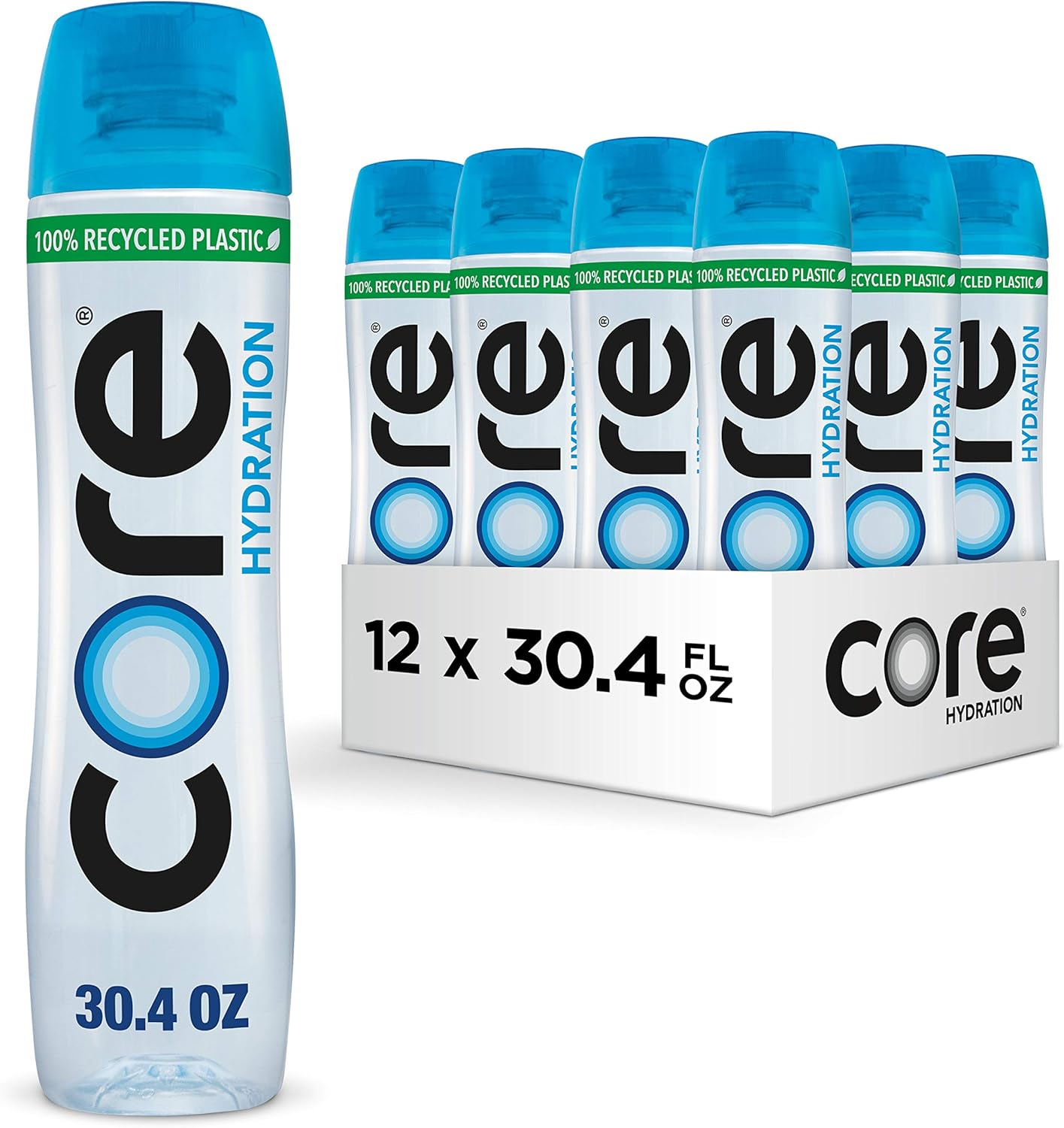
Core Natural Nutrient Enhanced Water, 30.4 Ounce(Pack of 12) by Core Natural
FREE Shipping
Core Natural Nutrient Enhanced Water, 30.4 Ounce(Pack of 12) by Core Natural
- Brand: Unbranded

Description
Cintineo, H. P., et al. (2018). Effects of protein supplementation on performance and recovery in resistance and endurance training.
When it comes to minerals, Core Water contains a blend of essential vitamins and minerals that your body needs to stay healthy and function optimally. This includes biotin, vitamin C, vitamin B7, and zinc. In addition, the minerals in Core Water are important for maintaining healthy bones, muscles, and nerve function. How Many Calories Does One Bottle Of Core Water Contain?Comes with a good blend of electrolytes and minerals that include calcium, potassium and magnesium. Consumers may feel drawn to bottled water following the crisis in Flint and the investigation of contaminated water at schools in New York and California. “I think that Flint brings up the problem of our aging infrastructure in the US and the need to look again at the regulations, to revamp the Lead and Copper Rule,” says Gretchen Onstad, a professor of environmental and occupational health sciences, who focuses on environmental pollution and drinking water. “I think that if the EPA regulations on drinking water according to the Safe Drinking Water are upheld, that tap water is very safe,” Onstad says.
pH Level: Core Water is designed to have a pH level of 7.4, considered neutral and balanced. This pH level mimics the body’s natural pH and promotes optimal hydration. In addition to all the health benefits, Core Water is a great-tasting, healthy beverage. It’s perfect for those who want to stay hydrated without other beverages’ added sugars and calories.
Initiatives
Wu says that diminished regulation leads to one of her main concerns about bottled water: it’s a common misconception that “if you can buy it at a store it means someone has okayed it”. “You shouldn’t assume that your bottled water is way better,” Wu says. Verhagen, H.; Van Den Berg, H. A simple visual model to compare existing nutrient profiling schemes. Food Nutr. Res. 2008, 52, 1649. [ Google Scholar] [ CrossRef] [ PubMed] A: Yes, Core Water is good for dehydration as it contains electrolytes that help replenish the body’s fluids. Conclusion
Comes with bottles that are BPA-free. This is just as well because you can use the cap as a cup to drink the water from. The alkaline nature of Core Water may be beneficial for those looking to maintain a healthy pH balance in the body.CORE’s water quality report shows that the TDS (total dissolved solids) is 82. But note that 82 is within the acceptable range as regular tap water is well over 400. It’s important to note that regular water provides all the hydration and nutrients required for our bodies. While Core Water and other alkaline water brands may have their benefits, they aren’t essential for hydration. The body can stay hydrated by consuming regular water and maintaining a balanced diet. This brief clarifies HMRC’s policy concerning the VAT treatment of supplies of juice cleanse programmes following the Upper Tribunal case involving The Core (Swindon) Ltd UT/2019/0049 (‘The Core’). Yes. A person will not be able to lose weight or build muscle or fitness by drinking protein shakes alone.
Although some other alkaline water brands do not include “chloride” minerals, chloride is not harmful to health. So, if you’re looking for a healthy, delicious beverage to add to your diet, Core Water is a great option. You’ll get all the benefits of a healthy drink without added sugars and calories. Abarca-Gómez, L.; Abdeen, Z.A.; Hamid, Z.A.; Abu-Rmeileh, N.M.; Acosta-Cazares, B.; Acuin, C.; Adams, R.J.; Aekplakorn, W.; Afsana, K.; Aguilar-Salinas, C.A.; et al. Worldwide trends in body-mass index, underweight, overweight, and obesity from 1975 to 2016: A pooled analysis of 2416 population-based measurement studies in 128·9 million children, adolescents, and adults. Lancet 2017, 390, 2627–2642. [ Google Scholar] [ CrossRef][ Green Version] The launch of Guinness’ Cold Brew Coffee Beer shows the brand has given up on playing in craft lager and ales simply because it’s trendy. Instead, it is looking for genuine adjacencies where it can leverage the things it is already loved for, better. It is a smarter and bolder approach. The recent launch of a range of Guinness sauces, too, which it created in partnership with The Flava People, shows it sees potential even outside the drinks sector (it launched a selection of recipe mixes and cooking pastes last year, too). Toews, I.; Lohner, S.; Küllenberg de Gaudry, D.; Sommer, H.; Meerpohl, J.J. Association between intake of non-sugar sweeteners and health outcomes: Systematic review and meta-analyses of randomised and non-randomised controlled trials and observational studies. BMJ 2019, 364, k4718. [ Google Scholar] [ CrossRef] [ PubMed][ Green Version]
A: Yes, Core Water is safe for children to drink as part of their daily hydration routine. It provides essential electrolytes and minerals that support their overall health. Banaszek, A., et al. (2019). The effects of whey vs. pea protein on physical adaptations following 8-weeks of high-intensity functional training (HIFT): A pilot study. Simply drinking clean filtered water will provide you with pretty much all the minerals and hydration that you need. This Review is From a REAL Personal Experience of Drinking CORE If a person is trying to lose weight by replacing meals, they should ensure they are still getting the recommended amount of essential nutrients each day. When is the best time to drink a protein shake?
- Fruugo ID: 258392218-563234582
- EAN: 764486781913
-
Sold by: Fruugo
